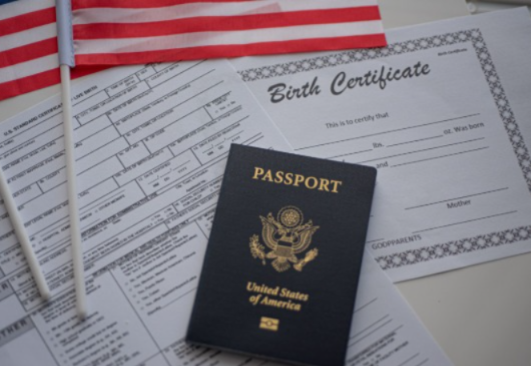Birthright citizenship, also known as jus soli (right of the soil), grants citizenship to anyone born in a country, regardless of their parents’ nationality.
While this practice remains in place in about 30 countries, many nations have either banned or restricted it in recent years.
United States: A Controversial Proposal
The United States is among the few countries still allowing birthright citizenship, but this practice has sparked heated debates. President Donald Trump recently signed an executive order titled “Protecting the Meaning and Value of American Citizenship,” aiming to end automatic citizenship for babies born in the U.S. after February 19.
Legal experts argue the move directly challenges the 14th Amendment, which has enshrined birthright citizenship since 1868. The amendment was introduced after the Civil War to grant citizenship to freed slaves and to overturn the 1857 Dred Scott v. Sandford decision, which denied African Americans U.S. citizenship.

The executive order is expected to face significant legal challenges, with many questioning its constitutionality.
Related Posts:
Global Practices
Europe: Most European nations have moved away from birthright citizenship. Countries like Germany, France, Italy, and the United Kingdom now require at least one parent to be a citizen or legal resident for a child to acquire citizenship.
Asia and the Indo-Pacific: Countries such as Japan, Australia, and New Zealand have restricted jus soli to cases where at least one parent is a citizen or permanent resident. Nations like China and Russia do not recognize birthright citizenship at all.

Middle East and Africa: In regions like the Middle East and Africa, birthright citizenship is also rare. Countries such as Egypt, India, and Pakistan require one or both parents to be citizens or legal residents.
Impact in the U.S.
The implications of ending birthright citizenship in the U.S. are significant. A 2016 Pew Research study estimated that 250,000 babies were born to undocumented parents in the U.S. that year. By 2022, 1.2 million U.S. citizens were children of undocumented parents.
The Migration Policy Institute warns that abolishing birthright citizenship could result in 4.7 million undocumented people by 2050, potentially straining immigration systems and altering the nation’s demographic landscape.
Broader Implications
As the debate over birthright citizenship continues, questions of national identity, immigration policy, and constitutional rights remain central. For nations like the U.S., which has upheld this principle for over 150 years, any changes could redefine what it means to be an American



